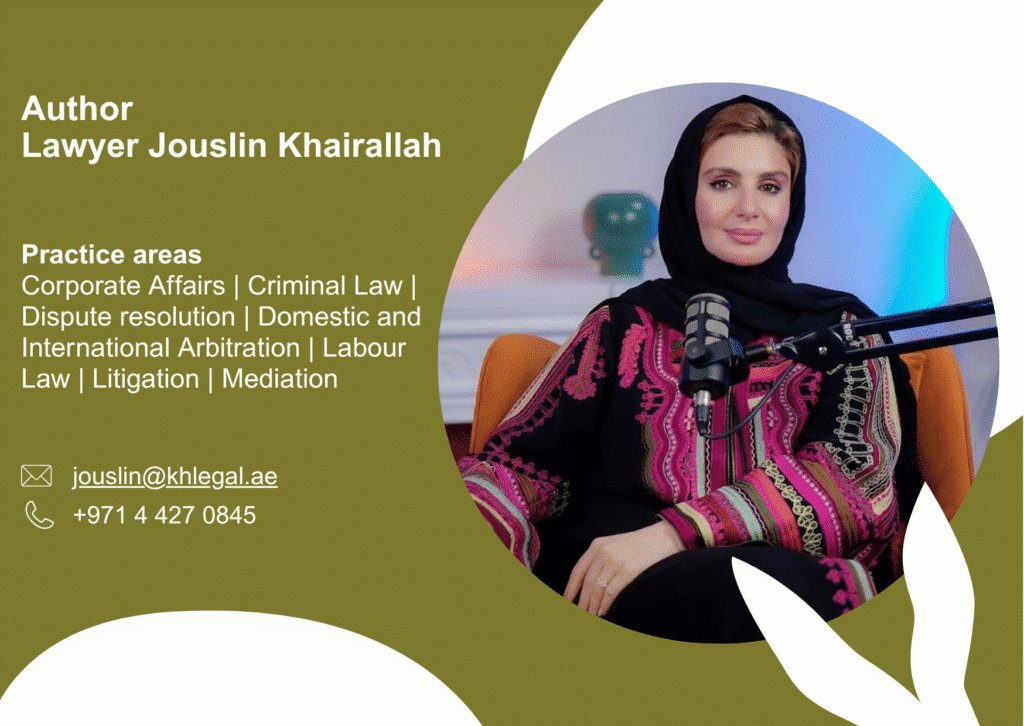In both civil and criminal legal systems, intention is not merely a theoretical element—it is often the decisive factor that shapes justice. The UAE legal framework, particularly under the Civil Code and Penal Code, places significant weight on intention—whether in proving criminal liability or evaluating good faith in civil actions.
The Meaning of Intention in Civil and Criminal Law
In civil law, the principle of good faith is enshrined in Article 246 of the UAE Civil Code, which provides:
“A contract must be performed in accordance with its contents, and in a manner consistent with the requirements of good faith.”
This principle extends to the execution of obligations, dealings in property, and general contractual performance. Bad faith—or abuse of rights—is addressed under Article 106, which prohibits the exercise of a right when it is intended to harm others, contradicts public order or morals, or results in damage disproportionate to its benefit.
In criminal law, Article 38 of the UAE Penal Code defines the moral element as either intentional or mistaken
Case Law: The UAE Courts on Intention
The UAE courts have consistently emphasized the importance of intention:
• In Cassation Case No. 998 of 2018, the Federal Court held that a fraudulent property sale required clear proof that the seller intended to deceive the buyer by using fraudulent means.
• In Cassation Case No. 274 of 2016, the court ruled that criminal intent could be inferred from possession and behavior, even without direct evidence of knowledge—such as in narcotics-related offenses.
These cases affirm that courts are willing to look beyond form and into the purpose and timing of actions to determine intent.
When There Is No Bad Intention: Medical Negligence and Criminal Liability
An important dimension of criminal liability in UAE law is that bad intention is not always required to establish guilt. A clear example of this is in medical negligence cases.
Under UAE Penal Code provisions, a medical professional may face criminal consequences—including imprisonment or fines—even if there was no deliberate intent to cause harm. In such cases, recklessness, lack of caution, or disregard for standard medical procedures may amount to criminal fault.
This reflects a sobering truth:
Even in the absence of bad faith, the consequences of negligence can lead to tragedy and criminal liability.
For instance, a doctor who fails to follow protocol during surgery, resulting in permanent injury or death, may be prosecuted under criminal law. While there was no intent to harm, the law holds the professional accountable for the breach of duty and the resulting damage.
This dual approach—distinguishing between intentional harm and culpable negligence—is a hallmark of the UAE legal system’s balance between justice and accountability.
Case from Practice: Exposing Bad Intentions in Property Disputes
At Khairallah Advocates & Legal Consultants, we recently represented a client in a civil lawsuit involving a gifted property between spouses.
The facts: Our client, the husband, approached the court to revoke a property gift made to his wife. The revocation was based on the abuse of trust and changes in marital circumstances.
The twist: As soon as the wife received the court notification of the lawsuit, she immediately sold the property to a third party—effectively preventing any potential enforcement against it.
This act raised a clear legal red flag.
We argued that this post-notification sale was done in bad faith, with the sole intention of frustrating our client’s legal claim. Under Article 106 of the Civil Code, such behavior constitutes an abuse of right, which allows the court to invalidate not just the subsequent sale but the original gift as well.
Our position: The court should not allow parties to benefit from strategic dishonesty, especially when their actions directly undermine the legal process. The wife’s conduct was not just morally questionable—it was legally abusive.
Conclusion: The Power of Intention
Intention is not a vague concept—it is the soul of the law. Whether in contracts or crimes, gifts or grievances, what lies behind an action can be more important than the action itself.
• In civil law, bad intention can invalidate agreements and defeat property rights.
• In criminal law, intention proves guilt—but even without it, gross negligence can bring serious consequences.
At Khairallah Advocates & Legal Consultants, we believe that good faith deserves protection, and bad faith must be exposed. We are committed to helping our clients navigate complex legal challenges with strategic precision, always grounded in principle and driven by justice.
If you or your business is facing a dispute involving fraud, misuse of property, medical negligence, or breach of trust, we are here to help. Contact us for strategic legal advice.
Having said that, Contact Khairallah Advocates & Legal Consultants and benefit from our free 30-min legal consultation.
*Disclaimer: our blogs, law updates, and FAQ’s are freely distributed for educational purposes and to showcase recent updates and regulations in the UAE’s framework.
If you have any questions and need assistance, contact us at our number or book an appointment online.
Author: Lawyer Jouslin Khairallah





